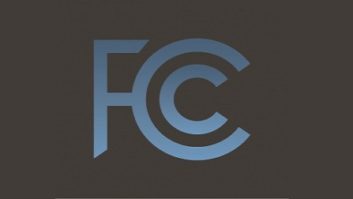The FCC has denied a request by the silent 710 WEKC(AM) Williamsburg, Ky., to reinstate its license and resume broadcast operations. The back and forth spanning two license renewal cycles includes a case brought before the U.S. Court of Appeals last year.
The saga with the station’s owner, Gerald Parks, started during the 2012 license renewal period. WEKC filed a renewal application, but the Media Bureau held action on processing due to the station’s lateness in paying renewal fees and a failure to maintain public affairs issues and programs lists in its inspection file. WEKC, as was the case with all applications filed during the 2012 period, requested its license be renewed for the full eight-year term.
The commission placed the renewal in a “red light” status, which remained in place until the next license renewal period in 2020. The FCC’s red light rule signifies that that anyone delinquent in non-tax debts to the commission who files an application will not receive action from the FCC until the debts are paid or other arrangements are agreed upon.
All stations, including those with a pending application in the prior renewal cycle, were required to file a new application by the April 1 deadline. Even after a subsequent notice was sent to Parks in July about a pending cancellation, no renewal was filed. On Aug. 6, 2020, WEKC’s license was cancelled.
In March 2022, Parks’ counsel requested the Media Bureau to grant WEKC’s 2020 renewal, some 18 months after the original deadline.
Surprisingly, the bureau then granted the original 2012 renewal application following Parks’ request, which it now says was erroneous. Parks followed in April with a petition to the commission saying, by virtue of the 2012 renewal being granted, the station’s license should be reinstated. He also argued that, because the 2012 renewal had still been pending, he need not have filed an application in the 2020 cycle.
But the commission disagreed. In response to Parks’ most recent March 2023 petition, it stood by its decision made earlier last year.
In the letter, the commission said Parks’ “own failure to comply with the rules excused him from timely filing a renewal application during the subsequent renewal cycle, which would reward licensees that fail to meet their financial obligations and comply with the rules.”
The erroneous 2012 renewal also would have had no bearing today, the commission said, because the license term had already concluded. WEKC was able to continue broadcasting through the entire eight-year term under the pending red light status, as the commission noted in its findings. “A station that violates the commission’s rules through nonpayment of required fees should not receive an indefinite license term after failing to file, pay filing fees for or provide local public notice of a renewal application,” the Media Bureau said.
Parks even attempted to escalate the case to the U.S. Court of Appeals for the D.C. Circuit in September 2022. But the court sided with the commission, noting Parks’ “failure to timely file a renewal application in 2020.”
Parks purchased the station in 2000. In the FCC’s case before the Court of Appeals, it noted that from the outset, “Parks struggled to comply with commission rules,” including improper monitoring for emergency alerts, multiple public inspection file violations and failure to register an antenna structure.
Summarizing the situation, the commission stated to the court that after failing to file a 2020 renewal, Parks “ignored repeated warnings that his license would expire and slept on his rights for 18 months after his license was cancelled.”
WEKC was an all-gospel music station and ran 4.2 kW ERP daytime.







